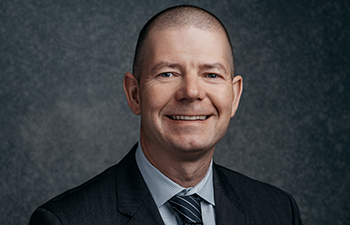President's Letter
Dear Members:
News that the remains of 215 Indigenous children were discovered in a mass grave at a former residential school in Kamloops has drawn attention to a dreadful legacy of the residential school system. This is not an isolated incident: graves have been found at other former school sites, including in Alberta. The search for these is still incomplete.
Canada’s disturbing history of residential schools raises broad societal and health care issues. In the interests of truth and reconciliation, we must not look away. The tragic effect of colonialism and intergenerational trauma on Indigenous Peoples has a direct effect on health. We witness this every day as it manifests itself in our health care system through: ill-health and poorer outcomes; mental health and addiction issues; lack of trust in the health care system; food and housing insecurity and other issues.
With respect to health care, the AMA has spoken out against systemic racism. Our Indigenous Health Committee is leading us in our work to implement the AMA Policy Statement on Indigenous Health, which sets out our association’s support and commitment to respond to the Truth and Reconciliation Commission of Canada: Calls to Action on health matters. The policy statement also reflects our determination to provide leadership in improving access and quality of care for Indigenous communities in Alberta.
A media report yesterday quoted an Alberta government publication regarding residential schools:
“These schools were established to forcibly assimilate Indigenous children into Euro-Canadian culture. Underfunded, located in remote places far away from children's home communities, and lacking proper oversight, the schools were plagued by disease, dubious educational outcomes and physical, emotional and sexual abuse.”
It has been foundational to me to understand the role these schools have played in the lives of Indigenous Peoples, and how those experiences have contributed to disparities in health and well being for those who directly experienced those horrors, as well as for the generations that have followed. If you have not yet found the time to educate yourself on their history, I would encourage you to do so. Truth is difficult, truth can be uncomfortable, but truth is necessary. Truth is the precursor to reconciliation, a critical step in which we must all play a part.
I note that a 24-hour emergency crisis line has been established by the Indian Residential School Survivors Society. If you, or someone you encounter, need(s) support concerning these issues, please call 1-866-925-4419.
As always, the Physician and Family Support Program is available to you also. Call 1-877-SOS-4MDS (767-4637) or visit www.albertadoctors.org/PFSP.
You can always reach me or comment in the usual ways.
- Communicate with me privately and directly by email if you would like a reply: president
@albertadoctors .org - Comment publicly on this President’s Letter on the AMA website (please be aware that comments are public, i.e., not members-only, even if you are logged in as a member).
Sincerely,
Paul E. Boucher, MD, FRCPC
President, Alberta Medical Association
